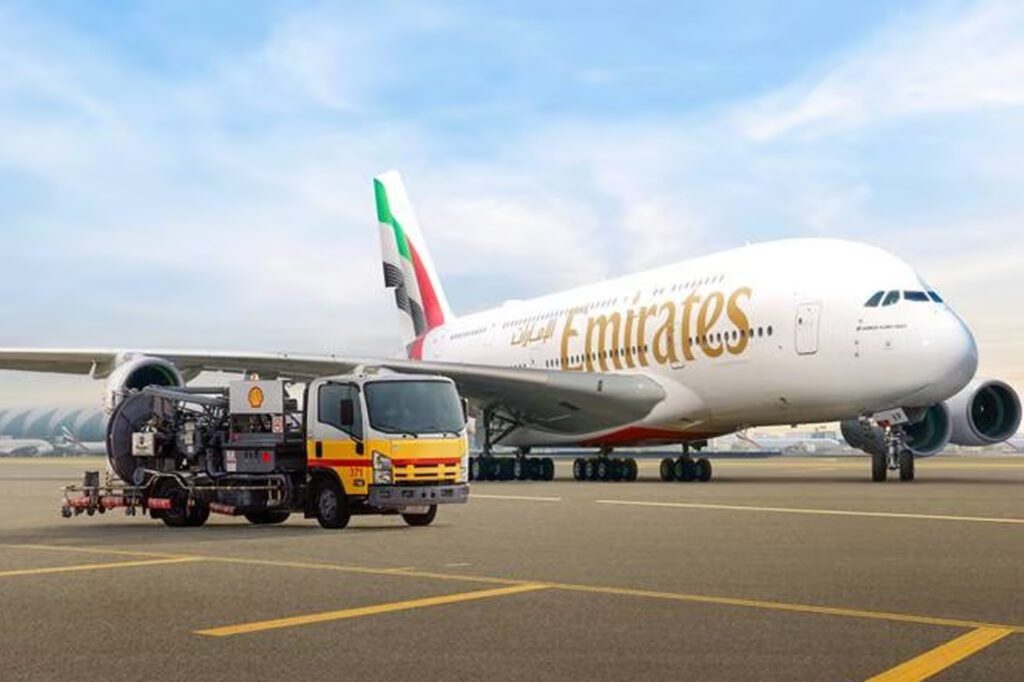Emirates made history with its first flight powered by a blend of sustainable aviation fuel (SAF) from Dubai International Airport last month, a part of the airline’s sustainability efforts. Under a supply agreement with Shell Aviation, the flight to Sydney, EK 412, departed on October 24.
Shell Aviation supplied 315,000 gallons of blended SAF to Emirates in Dubai, allowing the airline to operate multiple flights using this sustainable fuel.
Emirates aims to reduce emissions and support customers in minimizing their carbon footprint by adopting proactive measures like this, according to The National News.

Sustainable Aviation Fuel: A Crucial Tool for Achieving Net-Zero Emissions
Sustainable aviation fuel is derived from renewable sources and plays a critical role in helping the aviation industry reach its net-zero emissions target by 2050. However, it is still in its early stages due to limited production and higher costs compared to conventional kerosene.
The International Air Transport Association (IATA) estimates that SAF could contribute to about 65% of the emissions reduction required for the aviation industry to achieve net-zero emissions by mid-century. Currently, global production of SAF is only around 0.1% of total jet fuel demand.
The SAF supplied by Shell to Dubai International Airport is a blend of 40% neat SAF and 60% conventional Jet A-1 fuel. While SAF offers environmental benefits, the challenge lies in producing it at a scale that can effectively substitute a meaningful percentage of conventional jet fuel.
SAF is more expensive and not easily transported, making sustainable propulsion technologies a longer-term goal for the aviation industry.
Dubai International Airport has also committed to significantly increasing its solar power production from panels, which will contribute to the airport’s sustainability efforts.
Using renewable energy sources for ground equipment at the airport is another solution to reduce the environmental impact of aviation operations.


